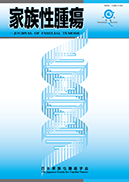Volume 3, Issue 2
Displaying 1-8 of 8 articles from this issue
- |<
- <
- 1
- >
- >|
-
2003Volume 3Issue 2 Pages 53-
Published: 2003
Released on J-STAGE: November 28, 2018
Download PDF (116K) -
2003Volume 3Issue 2 Pages 54-56
Published: 2003
Released on J-STAGE: November 28, 2018
Download PDF (239K) -
2003Volume 3Issue 2 Pages 57-61
Published: 2003
Released on J-STAGE: November 28, 2018
Download PDF (266K) -
2003Volume 3Issue 2 Pages 62-67
Published: 2003
Released on J-STAGE: November 28, 2018
Download PDF (472K) -
2003Volume 3Issue 2 Pages 68-75
Published: 2003
Released on J-STAGE: November 28, 2018
Download PDF (1402K)
-
2003Volume 3Issue 2 Pages 76-78
Published: 2003
Released on J-STAGE: November 28, 2018
Download PDF (200K)
-
2003Volume 3Issue 2 Pages 79-84
Published: 2003
Released on J-STAGE: November 28, 2018
Download PDF (480K)
-
2003Volume 3Issue 2 Pages 85-91
Published: 2003
Released on J-STAGE: November 28, 2018
Download PDF (641K)
- |<
- <
- 1
- >
- >|
